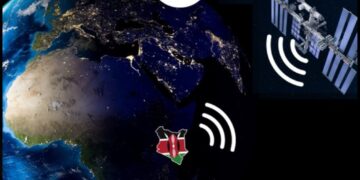In response to rising concerns and confusion surrounding the recently enacted Nigeria Tax Administration Act (NTAA), the Federal Government has clarified that ordinary Nigerians are not required to have a Tax Identification Number (Tax ID) to open or maintain bank accounts—unless they fall into the category of taxable persons or businesses.
Here is a breakdown of what the new policy means for you, and who it actually affects.
What Sparked the Confusion?
A wave of misinformation online suggested that every Nigerian, including students, retirees, and unemployed citizens, must obtain a Tax ID before they can operate a bank account. This led to panic, with many fearing that basic banking services would soon become inaccessible.
What the Government Actually Said
Taiwo Oyedele, Chairman of the Presidential Fiscal Policy and Tax Reforms Committee, addressed the issue directly via a statement on his official X (formerly Twitter) handle.
He explained that:
The Tax ID requirement only applies to taxable persons and businesses.
If you do not earn taxable income, you are not required to obtain a Tax ID.
The new Nigeria Tax Administration Act (NTAA) simply consolidates and updates existing tax rules—no new burden has been placed on low-income Nigerians.
What Is the Nigeria Tax Administration Act (NTAA)?
Signed into law in 2025, the NTAA builds upon the Finance Act of 2019, which first introduced the need for a Tax Identification Number (TIN) for business bank accounts.
The NTAA simplifies the process by:
Replacing multiple identifiers with a single, harmonised Tax ID.
Allowing your National Identification Number (NIN) or Corporate Affairs Commission (CAC) number to automatically serve as your Tax ID.
Making Tax ID registration available online or at tax offices free of charge.
Key Points for Individuals
You do not need a Tax ID to open or maintain a personal bank account—unless you earn taxable income.
If you are a salary earner, business owner, or professional, you are considered a taxable person and must have a Tax ID.
NIN equals your Tax ID if you are an individual; CAC number equals Tax ID for businesses.
The Tax ID is a digital number, not a physical card. Avoid anyone trying to sell you a “Tax ID card.”
Who Must Have a Tax ID by 1 January 2026?
All taxable persons (employees, entrepreneurs, professionals)
Registered businesses and companies
Non-resident companies operating in Nigeria
Government-owned enterprises and agencies
Nigerians in the diaspora needing access to banking or investment services
From 1 January 2026, those required to have a Tax ID and fail to register may face the following:
Inability to operate bank accounts
Ineligibility for insurance, pension, and investment services
Penalties for non-compliance under the NTAA
What Are the Benefits of This Reform?
According to Oyedele, the new system aims to:
Reduce tax evasion
Streamline identification processes
Make tax compliance easier for businesses and individuals
Protect low-income earners from unnecessary bureaucracy
How to Get a Tax ID
If you already have a NIN (as an individual) or CAC number (as a business), you already have a Tax ID.
If you need to register, you can do so:
Online via the Federal Inland Revenue Service (FIRS) portal
At any tax office—no fees required
Beware of Scammers
The government has warned Nigerians to avoid touts and unofficial agents who may try to sell fake “Tax ID cards” or charge money for registration. Always use official government platforms to register or update your Tax ID details.
The Federal Government wants to assure citizens that most ordinary Nigerians will not be affected by the Tax ID requirement. The reform is mainly aimed at improving tax compliance among those who are already meant to be paying taxes, without burdening low-income earners.
If you do not earn taxable income, you can still open and use your bank account as usual.




















































































 EduTimes Africa, a product of Education Times Africa, is a magazine publication that aims to lend its support to close the yawning gap in Africa's educational development.
EduTimes Africa, a product of Education Times Africa, is a magazine publication that aims to lend its support to close the yawning gap in Africa's educational development.